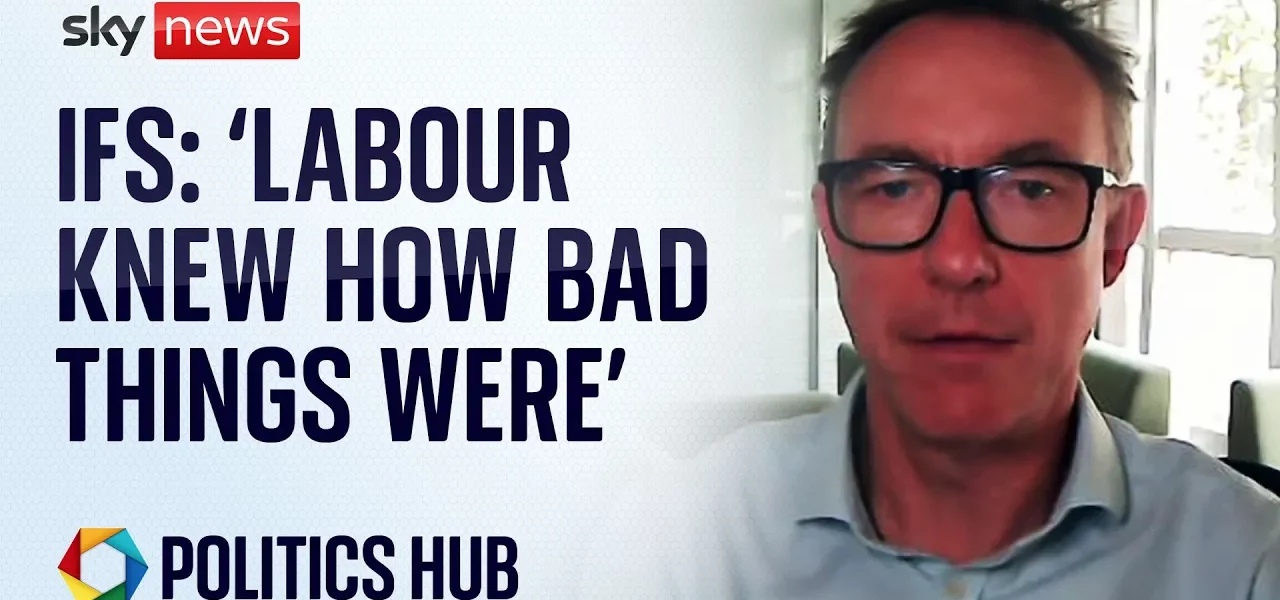Political Challenges in the UK Government: An In-Depth Analysis

In this article, we explore the pressing political challenges faced by the UK government, particularly regarding public finances, labor issues, and the impact of recent policy decisions. As the nation grapples with economic difficulties, it is essential to understand the complexities surrounding these issues.
Introduction
The political landscape in the UK is currently fraught with challenges, particularly as the government navigates the aftermath of the previous administration’s policies. With increasing demands on public services and a pressing need for financial accountability, the new government’s response is crucial. Labor’s assertion that they were not adequately warned about the severity of the public finances raises questions about transparency and responsibility. This article delves into the critical issues surrounding public sector funding, the demand for pay rises, and the implications for future tax policies.
The State of Public Finances
As the new administration settles in, it becomes evident that they face a daunting financial landscape. The previous government’s choices have left a legacy of fiscal challenges that are difficult to navigate. Understanding the current financial state is vital for both policymakers and the public.
Awareness of Financial Challenges
It is widely acknowledged that the new government was aware of the overarching difficulties facing public finances. Several key areas require immediate attention:
- Children’s social care
- The prison system
- The court system
- NHS waiting lists
These sectors have been under strain for years, and the need for funding is critical. Despite the acknowledgment of these issues, specific challenges may have been underestimated.
Immediate Financial Pressures
The incoming government has likely discovered that the immediate financial pressures are more severe than initially anticipated. This unexpected intensity may lead to a reevaluation of their strategies and priorities.
Public Sector Pay Rises
One of the most pressing issues on the government’s agenda is the compensation of public sector workers. With increasing demands for fair pay, the government must navigate the complexities of public sector finances while ensuring fair compensation.
The Case for Pay Increases
Public sector workers, including nurses and teachers, have faced stagnant wages relative to their private sector counterparts. The proposed pay rises of 5-6% highlight the urgency for change:
- Comparison with private sector pay increases.
- The historical context of wage stagnation in the public sector.
- The economic implications of higher wage demands.
These increases, however, come with significant financial implications for the government, suggesting a need for substantial adjustments to the budget.
Cost Implications
The financial burden of implementing these pay rises is considerable. Initial estimates suggest:
- £3.5 billion for the NHS and education sectors alone.
- Potentially up to £10 billion across the entire public sector.
This financial strain will undoubtedly influence future budgetary decisions and necessitate discussions around tax increases.
Tax Policy and Revenue Challenges
As the government contemplates solutions to its financial challenges, tax policy remains a contentious topic. Decisions made now will have lasting implications for public services and economic stability.
Current Tax Constraints
The government has indicated that certain tax increases, such as National Insurance, VAT, and income tax, will not be on the table. This limitation complicates efforts to address the financial shortfall:
- Restrictions on raising main tax rates.
- The challenge of finding alternative revenue sources.
- The potential impact on public services funding.
Alternative Tax Strategies
While traditional tax increases may be off the table, there are discussions about exploring less conventional options:
- Revising capital gains tax.
- Adjusting inheritance tax regulations.
- Implementing more equitable tax structures.
Each of these alternatives presents its own set of complexities and uncertainties, making the path forward challenging.
Conclusion
The UK government is at a critical juncture as it confronts significant financial challenges and public sector demands. The implications of labor’s claims and the necessity for transparency in financial policies are paramount. With public sector pay rises looming and tax policies under scrutiny, the government must navigate these issues carefully to ensure the sustainability of public services. It is vital for citizens to stay informed and engaged in these discussions as they will shape the future economic landscape of the UK. For more insights on public policy and economic strategies, visit our related articles section.
“`




